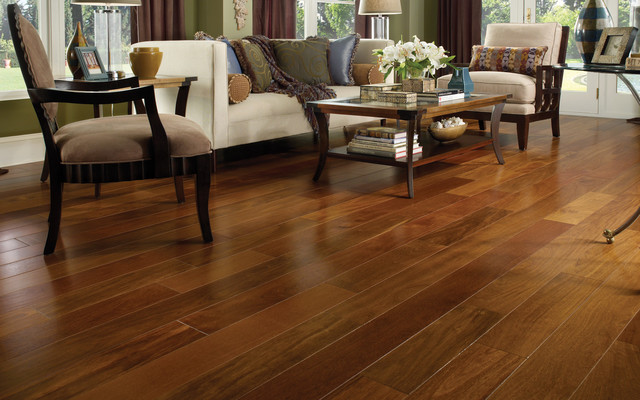Engineered floors are a significant advancement in general flooring technology, but many people don’t understand what it is, why it matters, or how it can help. Worry no more, because your questions are about to be answered, as we talk about when and why you should consider putting this type of flooring in.
The basic task of flooring is, of course, to hold things up. You can get away with a home that has no real walls, especially in tropical areas, but most people are far more comfortable with something sturdy under their feet. The real question is what kind of flooring you want to have, and what sort of effect this will have on your daily lifestyle. At the low end, you have dirt, which… Well… Doesn’t really protect anything. It’s cheap, but nobody really wants to have it no matter how inexpensive it is. You could also lay down a layer of carpet in your home, and that’s not always a bad idea – carpet provides an excellent degree of traction, making it ideal for stairs and the like, but the fibers trap dirt and require a lot of effort to clean. Wood flooring is popular simply because it’s durable, attractive, affordable, and very easy to clean… And it’s here that we get into why you want to use engineered floors. You see, engineered floors are essentially wood floors that have increased durability, allowing them to hold up more weight with less effort than the traditional materials used.

In a word, that’s good. In two words, that’s very good. See, modern entertainments and luxuries can get pretty darn heavy. Even if a normal floor is able to support the weight, it could become damaged over time and get dented, chipped, or otherwise harmed. Problems like these can significantly reduce the perceived value of the home and make buyers less interested in owning the place – and that, of course, is bad. Properly engineered floors will have no trouble with the same weights and loads, and as an added bonus, they’re significantly less likely to be harmed even if you accidentally drop heavy furniture onto them. Even better, firm flooring can help to keep the house more secure in the event of a natural disaster – its resistance to damage might just save your life someday. It’s a bit of an extreme circumstance, yes, but there’s no such thing as being too prepared… Especially if you live in a place where natural disasters are a serious concern.
Now, that’s why you should install them, so let’s think about “when” for a moment. Personally, I think it’s best to remodel the floors when you’re moving into a new home; just about everything should be open, and you’ll be able to get the floors put in and locked down tight as quickly as you can. Engineered flooring is the ideal flooring type for anyone concerned about the strength and durability of their house – get it done early, get it done right, and you can enjoy the benefits for years to come.
Engineered flooring allows for precision-set pieces, even with the most complicated jobs and designs that people might encounter.



